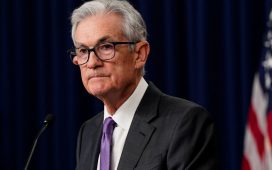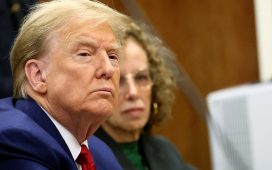The rise of income inequality and the struggles of so many families to get ahead have shaken American politics across the spectrum.
President Donald Trump invokes the plight of “the forgotten people.” Liberals call for massive new government programs.
Wall Street titan Jamie Dimon proposes “a Marshall Plan for America.” Ideological conservatives warn of a socialist uprising that would ruin American capitalism.
But economists who study the issue say it need not come to that. With bold and targeted steps, they argue, government can increase opportunity and incomes for many more people in ways that strengthen, not weaken, American capitalism.
Here are five of them:
Bolstering human capital
“We could tax more from all the folks at the top to spend money making investments in the people who are being left behind,” says University of Maryland economist Melissa Kearney.
That includes access to affordable health care, job training, apprenticeships and vocational education. Most important is improved basic education, beginning with prekindergarten programs for 3- and 4-year-olds.
“I don’t think education by itself is a solution to income inequality,” says MIT’s David Autor. “It’s the best tool in our toolkit.”
Raising wages and returns
Government can make employment more profitable for low-income workers. A higher minimum wage is just one way, and a limited one.
“There’s only so much you could do in terms of making workers more expensive without actually harming the people you’re trying to help,” Kearney said.
Alternatives include increasing the earned income tax credit and subsidizing child-care services so more low-income parents can work. Easing occupational licensing requirements would smooth the path to more people taking up higher-paying lines of work, and loosening prohibitions against work would boost incomes for millions of Americans now reliant on disability benefits.
Altering corporate governance
In recent decades, the rise of “shareholder capitalism” in the American system has reduced the influence of workers in economic decision-making and enhanced the influence of business owners. Government and corporations can alter the social contract.
“The idea that corporations should just maximize profits without any regard to any other objective is fairly recent,” Autor says. “It’s possible to imagine adjustments to the structure of corporate governance that would think a little harder about additional stakeholders and potential beneficiaries aside from just owners.”
For example, Democratic presidential candidate Elizabeth Warren has proposed that workers at a corporation be allowed to elect 40% of the board of directors. Similar arrangements in Germany have resulted in much more limited use of one manifestation of shareholder capitalism — stock buybacks.
Expanding infrastructure
Better roads, bridges and airports can improve productivity and prosperity for business owners and workers alike. So can digital connections to sparsely populated communities the 21stcentury economy has left behind
“Forty percent of rural Americans don’t have access to broadband internet,” Kearney says. “That’s like electricity to a previous generation, so that’s an obvious infrastructure investment that would make a place more conducive to job growth.”
At the same time, the cost of a decent home keeps many potential workers from opportunities in economically thriving cities. Relaxed zoning, development subsidies and rental assistance could increase the stock of affordable housing.
Protecting intellectual property
Trump’s tariffs have roiled financial markets. And a trade war with China won’t bring many manufacturing jobs back.
But improved protection of intellectual property can help the new American economy.
“The Trump administration has been correct to focus on that area of dispute with China,” Autor says. “China has not played by the rules … and forced a lot of disgorgement of U.S. intellectual property, which ultimately will make us poorer over the long run.
“It’s not at this point so much about jobs as it is about ownership of ideas and control of frontier sectors that we don’t want to lose like aircraft, like microprocessors, like personal computers and mobile phones, like pharmaceuticals.”
None of these steps is easy. Substantial economic change ignites conflict — in Washington, on Wall Street, on Main Street.
But they could shift entrenched patterns that have left tens of millions of Americans feeling economically helpless.
“There are many countries that are facing the same set of challenges,” Autor says. “And they’ve adapted in different ways.
“If we compare ourselves to Germany, to Canada, to Sweden, to Switzerland, Norway — these are all a spectrum of market economies. We all have mixed economies, ranging from sort of cowboy capitalism in the United States to kind of cuddly capitalism in Norway. And those countries have made different choices about how much they want to push against those forces through a variety of programs.”
The question is whether public policy is susceptible to big changes. The 2020 campaign will tell whether discontent has grown powerful enough to force them.
“I worry that there’s a complacency from some folks that, you know, this is always been the American way,” Kearney says. “Our capitalist system continues to be the best in the world and it’s all going to work.
“There are global forces,” she concludes. “Things are different now.”





